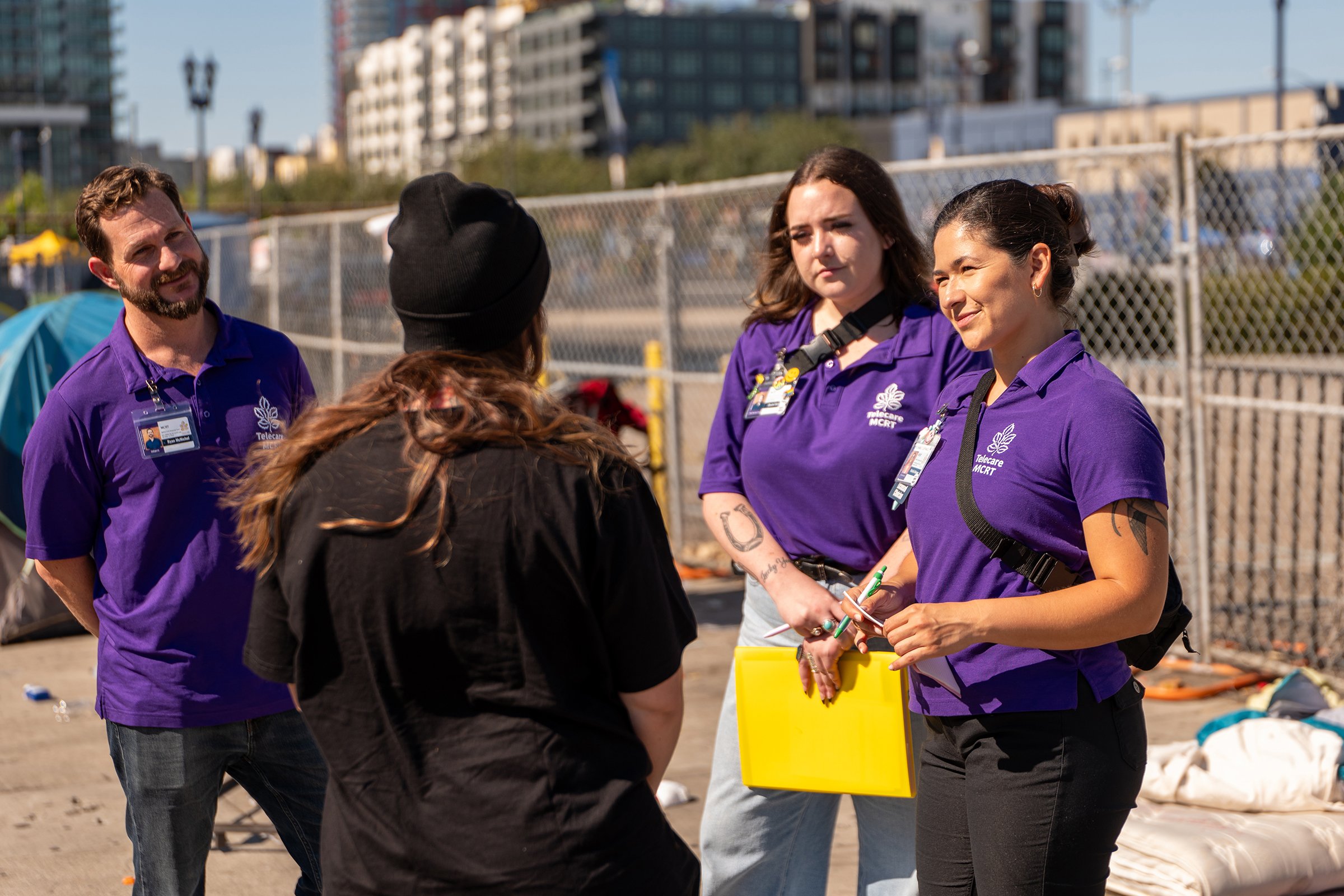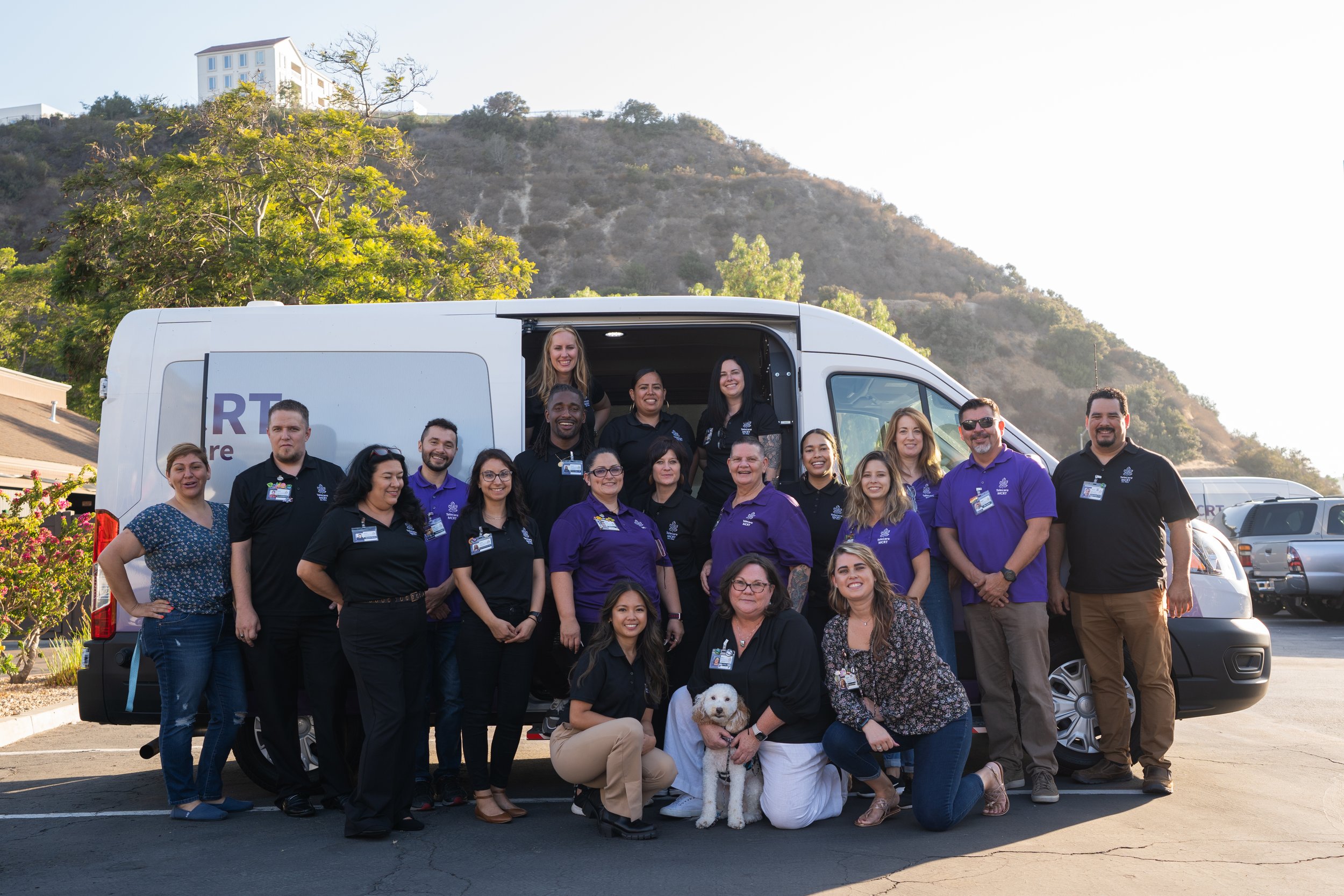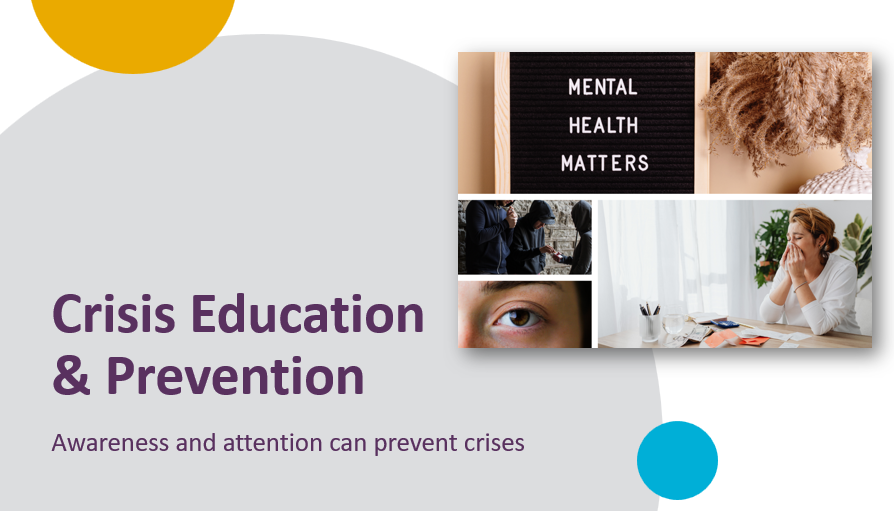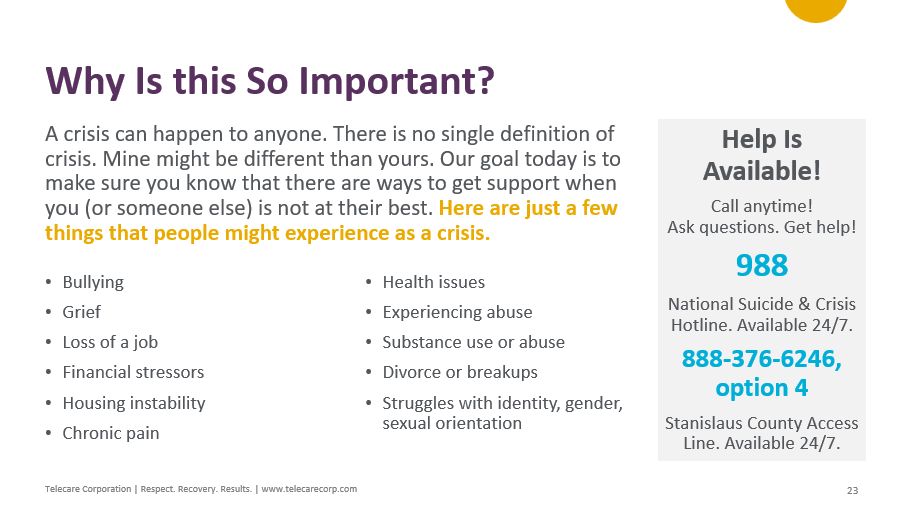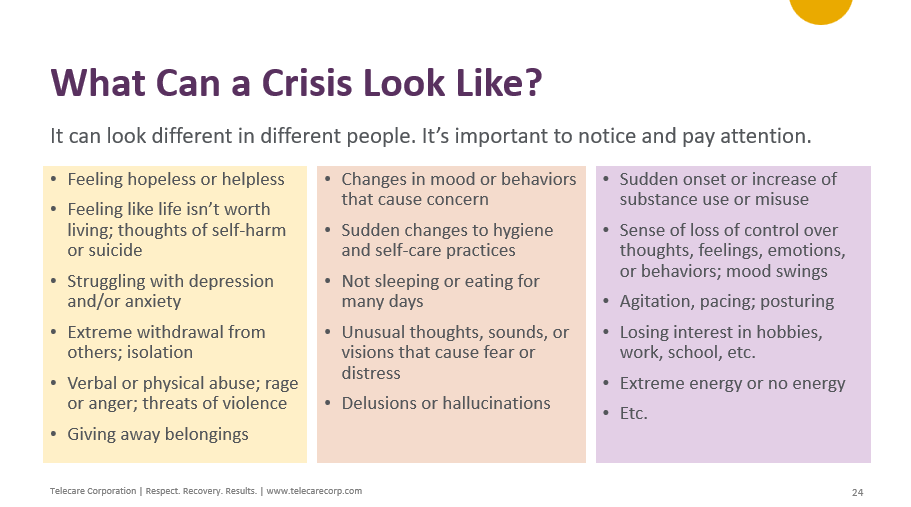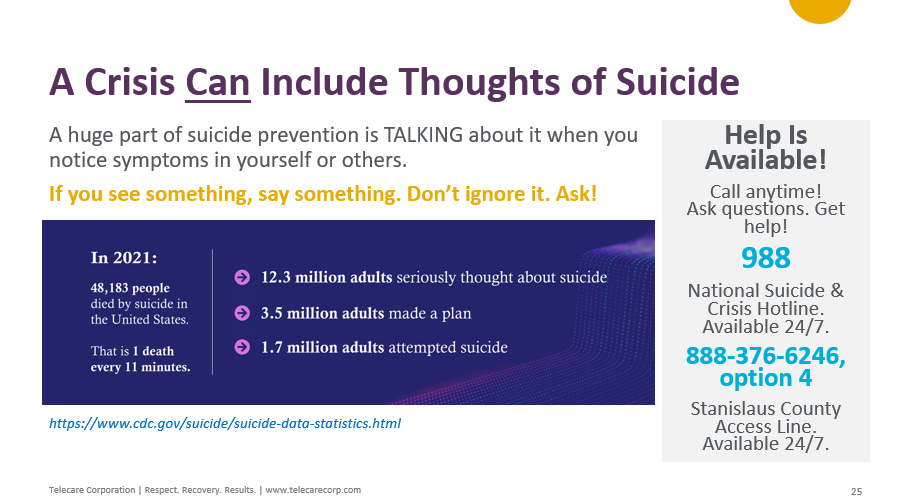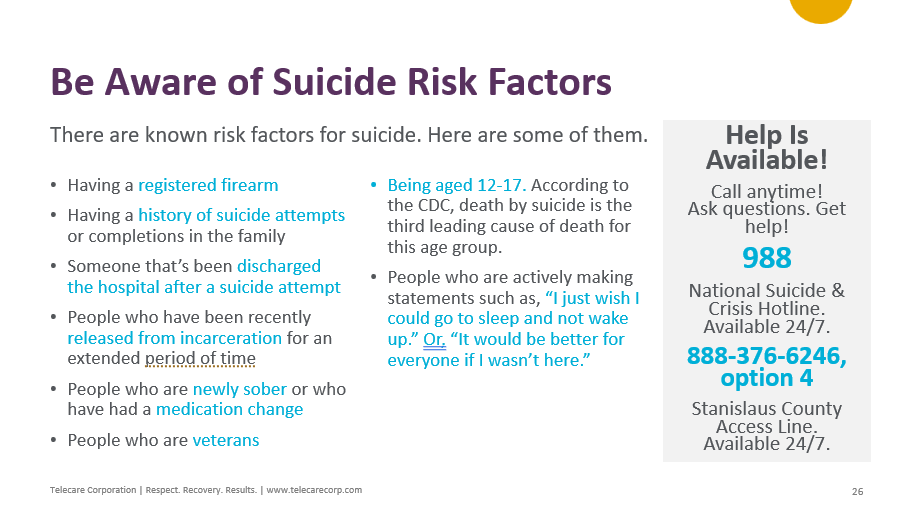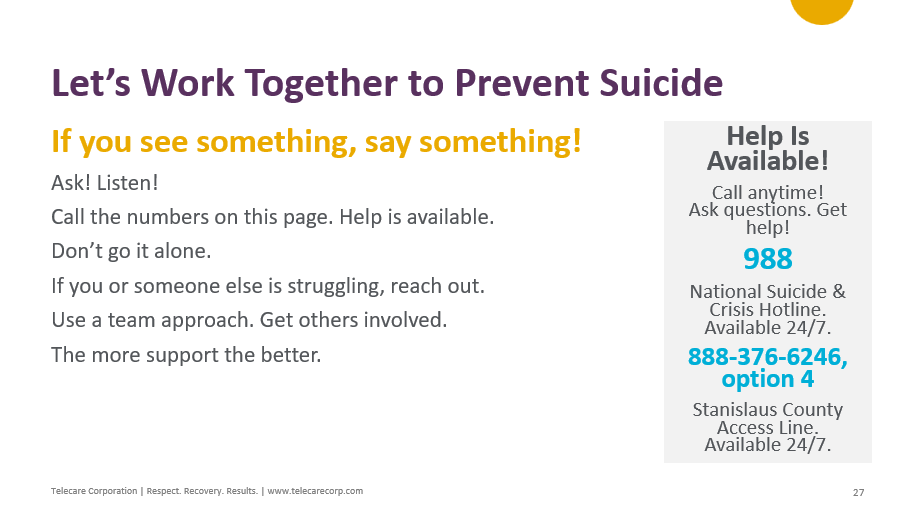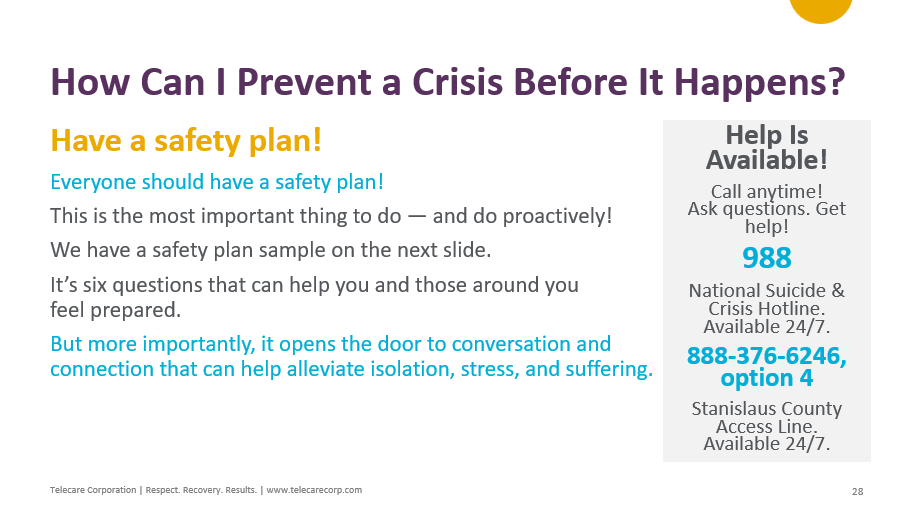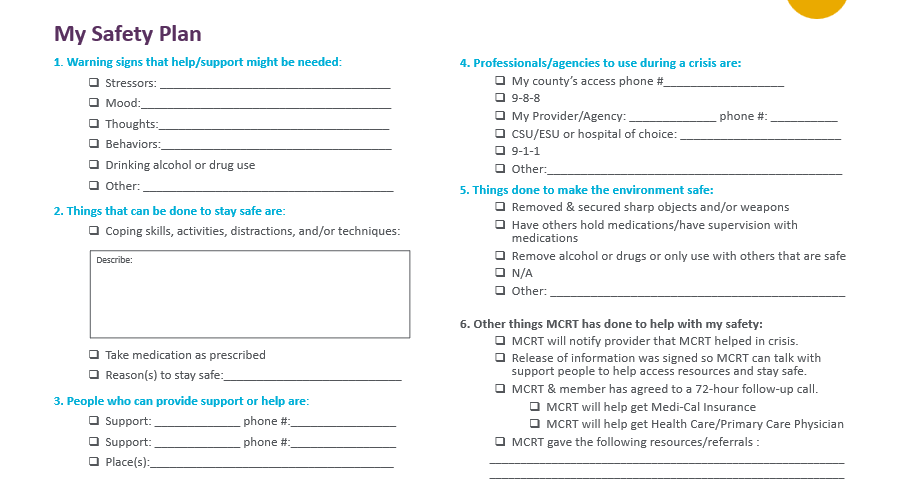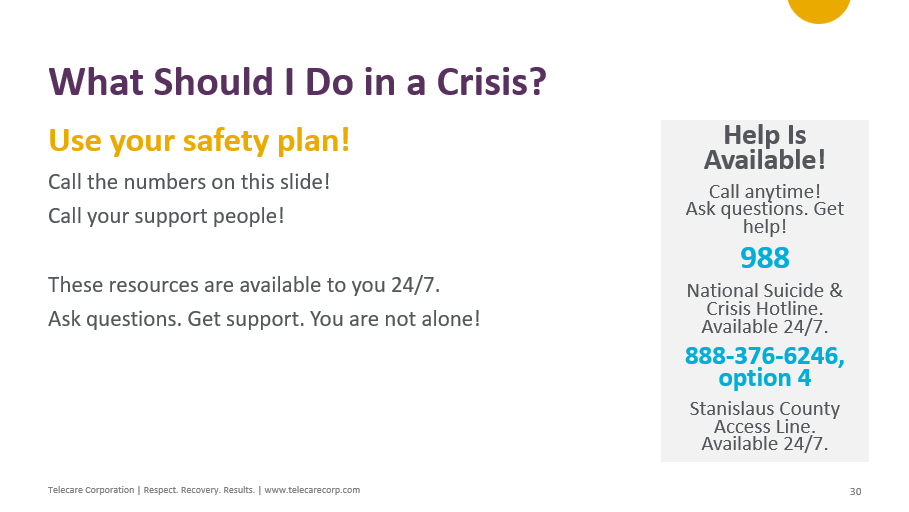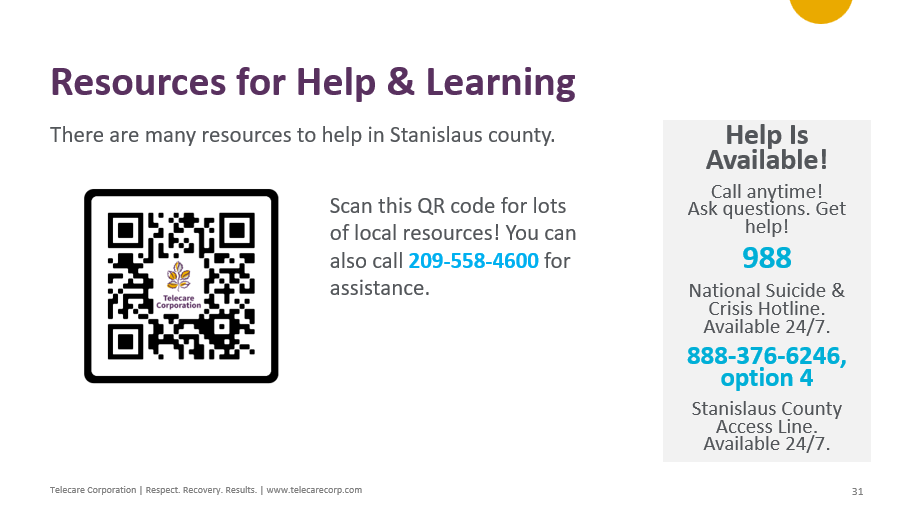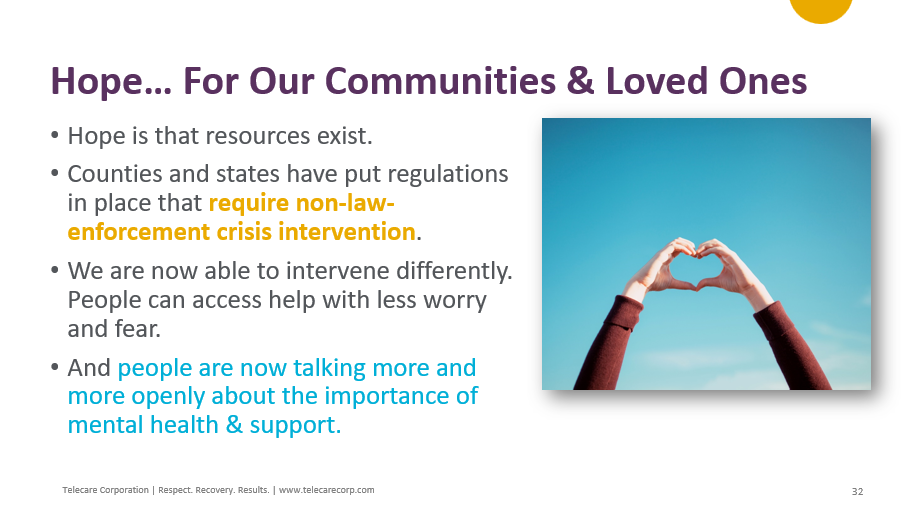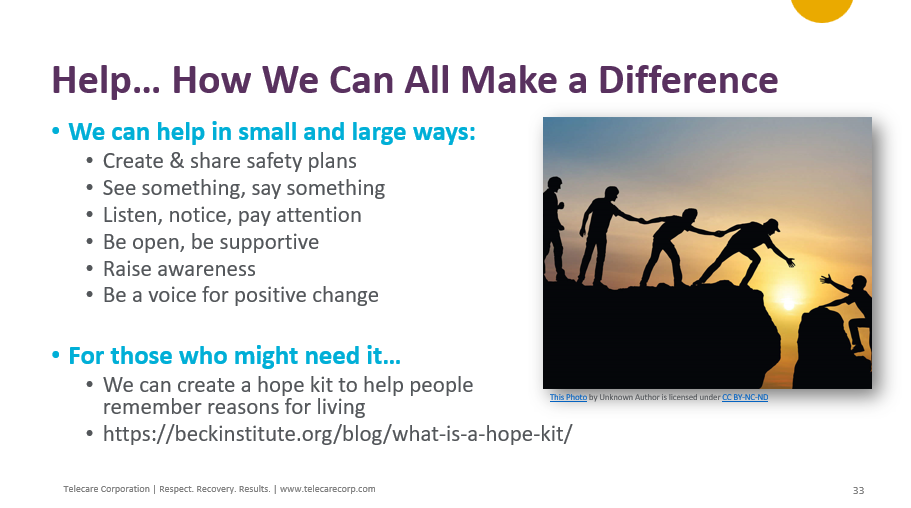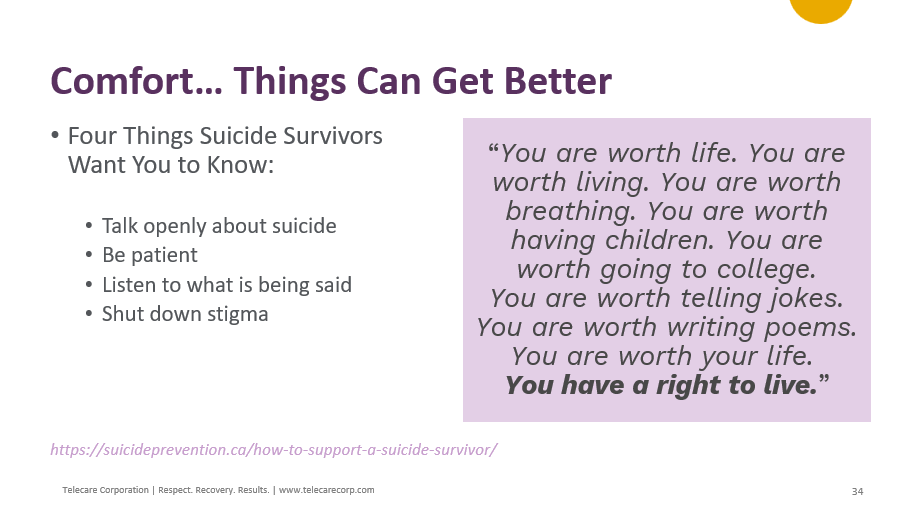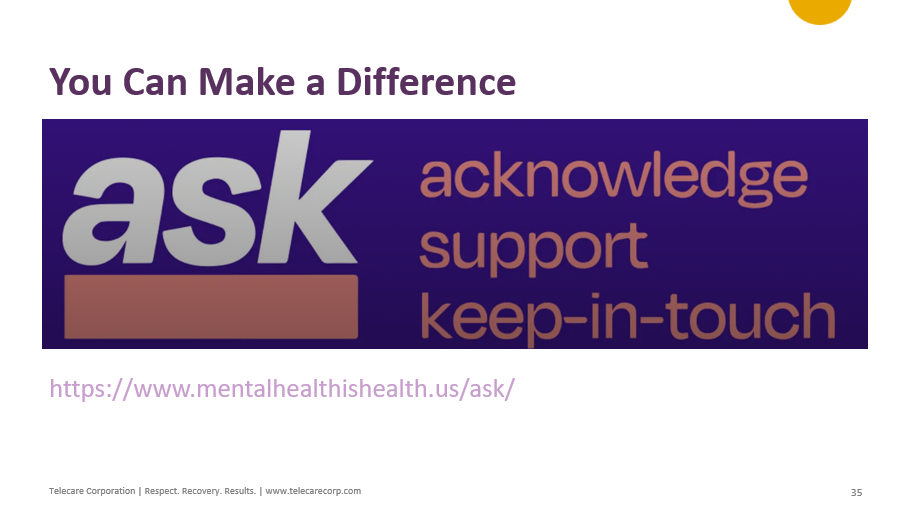Stanislaus Mobile Crisis Response Team (MCRT) (627)
Do You or Someone You Know Need Help?
About Our Program
Telecare has partnered with Stanislaus County Behavioral Health and Recovery Services to deliver non-law enforcement crisis intervention services to residents of Stanislaus County.
The Stanislaus Mobile Crisis Response Team (MCRT) brings rapid crisis support to people in the community delivered by a dedicated team of mental health professionals with law enforcement involvement only where necessary.
The Stanislaus MCRT delivers much-needed crisis care in Stanislaus County — in a safe, accessible, and compassionate way. We help people get the support they need, reduce stigma and fear, and help prevent and reduce unnecessary law enforcement involvement, ER visits, and hospitalizations.
Program Details
What We Do: Stanislaus MCRT is a mobile crisis response program. Our team of mental health professionals delivers rapid crisis support to people out in the community. Our services include crisis triage, screening, assessment, in-person crisis intervention and stabilization, and linkage to ongoing support. If clinically indicated, we will also provide transportation for people to county-designated behavioral health sites for further assessment, evaluation, and treatment.
Who We Serve: Anyone experiencing a behavioral health crisis in Stanislaus County, including adults, older adults, children, youth, and families.
Referral Process: Referrals can be called into Stanislaus MCRT 24/7. Telecare connects with the 988 Suicide and Crisis Lifeline, the police, 911, the Family Urgent Response System (FURS), and local organizations.
Hours of Operation: 24 hours a day, 365 days per year.
Our Program Type: Crisis
What To Expect When You Get MCRT Services
Team and individual will work on crisis safety planning to
help with stabilization and prevent future crises.If an individual is a grave risk to self or others,
the team may initiate an involuntary hold (72-hour max).The team will create a care coordination plan, including
linkage to other providers, services, and resources.The team will provide transportation (if needed).
The team will make sure that there is a warm handoff (a helpful, person-to-person handoff to the next setting or provider).
The team will conduct care coordination follow-up with the individual, starting within 24 to 72 hours of the visit.
The Stanislaus MCRT team will typically arrive on-site within
60-90 minutes of being dispatched.The team will arrive in an MCRT vehicle. Purple shirt people!
The Stanislaus MCRT will stay on site however long is needed.
The team and individual will talk in an environment that is
most comfortable to client; family or friends may be
invited if individual wishes.Team will complete screening, assessment.
Team and individual will work together on intervention and stabilization.
Education & Prevention: How to Help Prevent a Crisis Before It Starts
A crisis can happen to anyone. There is no single definition of crisis. Mine might be different than yours. Our goal today is to make sure you know that there are ways to get support when you (or someone else) is not at their best. Here are just a few things that people might experience as a crisis.
Health issues
Experiencing abuse
Substance use or abuse
Divorce or breakups
Struggles with identity, gender, sexual orientation
Bullying
Grief
Loss of a job
Financial stressors
Housing instability
Chronic pain
MCRT News
Learn About Telecare’s Clinical Approach
Telecare was founded on the belief that rehabilitation and recovery from serious mental illness are possible. We have consolidated our learning and experience into the Recovery-Centered Clinical System (RCCS), a richly personal, holistic, and comprehensive approach to recovery. Learn more about the RCCS by clicking here.

